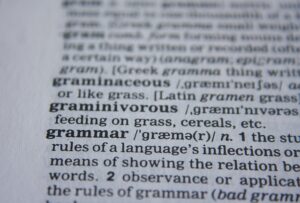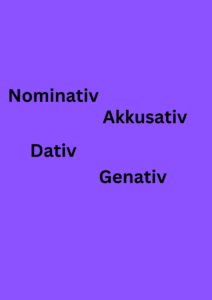It is a compilation of information I gathered over time. I hope you find it useful. Please notify us if you find any errors.
Where to learn German
On this page you can find links to off-and online resources to learn German. There is also a list of Apps.

Learning German
There are several approaches to learn German, all of which can help you achieve your language learning goals. You can opt for convenient online sites that offer a range of language courses or download mobile apps that make learning on-the-go a breeze. Alternatively, you can choose to attend classes where
Basic Grammar

Basic German Grammar
Here is a short introduction to the structure of sentences. It will help you understand what is the difference between a subject, object, preposition, verb and articles English
Kasus / Cases
Artikel

Gender
It would be best if you learned the gender of each new word (Noun) you learn in German. This is not always easy to do and we hope the list below will be of some help. These lists give an indication of which article to use for some words e.g
Adjektivendung
Adjektivendungen
Adjectives are descriptive words like young, old, beautiful etc. In German, adjectives change their endings depending on whether the person or thing you are referring to is masculine, feminine or neuter and whether singular or plural. It also depends on the case/kasus of the person or thing you are describing
Pronouns

Pronouns
Pronouns are words that take the place of a noun. Words like I, me, she, you, it, herself. Additionally, you get Relative and possessive pronounsRelative pronouns: which, that, whose, whoever, whomever, who and whom,
Verbs

Verbs
Verbs are action words (e.g., to run, to eat, to learn).In German, verbs that describe actions are known as “tun-Verben” (doing verbs) and verbs that describe a state of being are called “sein-Verben” (being verbs). For example, “laufen” (to run) is an action verb because it describes the action of running. On the other hand, “sein” (to be) is a being verb because it describes a state of existence or identity.
Tips
- A sentence can have a Subject, Direct Object, and Indirect Object. Also important is the Verb (action). Within one sentence you can have different Cases
- The Subject is always in the Nominative Case.
- The Direct Object (What/Who or Wen?) is mostly in the Accusative Case (may also depend on the Präposition or Verb).
- The Indirect Object (To Whom? or Wem?) is mostly in the Dative Case (may also depend on the Präposition or Verb)
- In a sentence with just a Subject and Direct object, the basic word order is Subject -Verb – Accusative (Der Mann (subject) isst den Apfel (direct object))
- in a sentence with dative and accusative case the basic word order is: Subject-Verb-Dative-Accusative (Das Kind (subject) gibt der Mutter (indirect object) einen Kuss (direct object). Of course, there is an exception when two pronouns are involved eg Ich schenke ihn ihr see more here. The normal rule is Dative before accusative, If both the dative and the accusative objects are pronouns, then accusative before dative




You must be logged in to post a comment.